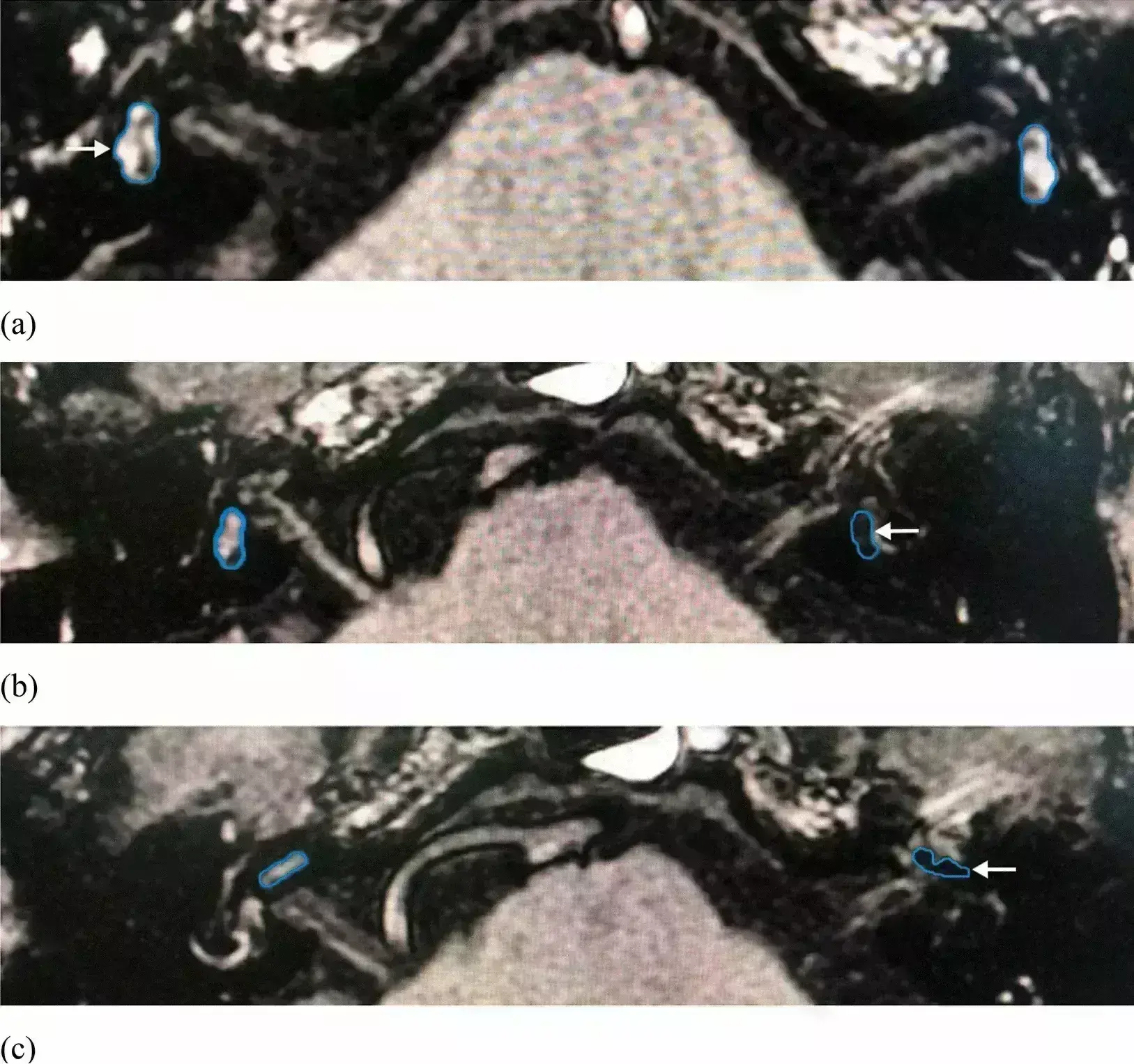- Home
- Medical news & Guidelines
- Anesthesiology
- Cardiology and CTVS
- Critical Care
- Dentistry
- Dermatology
- Diabetes and Endocrinology
- ENT
- Gastroenterology
- Medicine
- Nephrology
- Neurology
- Obstretics-Gynaecology
- Oncology
- Ophthalmology
- Orthopaedics
- Pediatrics-Neonatology
- Psychiatry
- Pulmonology
- Radiology
- Surgery
- Urology
- Laboratory Medicine
- Diet
- Nursing
- Paramedical
- Physiotherapy
- Health news
- Fact Check
- Bone Health Fact Check
- Brain Health Fact Check
- Cancer Related Fact Check
- Child Care Fact Check
- Dental and oral health fact check
- Diabetes and metabolic health fact check
- Diet and Nutrition Fact Check
- Eye and ENT Care Fact Check
- Fitness fact check
- Gut health fact check
- Heart health fact check
- Kidney health fact check
- Medical education fact check
- Men's health fact check
- Respiratory fact check
- Skin and hair care fact check
- Vaccine and Immunization fact check
- Women's health fact check
- AYUSH
- State News
- Andaman and Nicobar Islands
- Andhra Pradesh
- Arunachal Pradesh
- Assam
- Bihar
- Chandigarh
- Chattisgarh
- Dadra and Nagar Haveli
- Daman and Diu
- Delhi
- Goa
- Gujarat
- Haryana
- Himachal Pradesh
- Jammu & Kashmir
- Jharkhand
- Karnataka
- Kerala
- Ladakh
- Lakshadweep
- Madhya Pradesh
- Maharashtra
- Manipur
- Meghalaya
- Mizoram
- Nagaland
- Odisha
- Puducherry
- Punjab
- Rajasthan
- Sikkim
- Tamil Nadu
- Telangana
- Tripura
- Uttar Pradesh
- Uttrakhand
- West Bengal
- Medical Education
- Industry
Intratympanic steroid injections effective for treatment of Meniere's disease, finds Study

Courtesy by Maoli Duan et al., Scientific Reports
Recent research has found out that Intratympanic steroid injections (ITSI) could be a safe and the effective treatment for refractory Meniere's disease, according to the study published in the American Journal of Otolaryngology.
Intratympanic steroid injections (ITSI) have become a promising treatment for refractory Meniere's disease due to less cochleovestibular damage. However, whether ITSI would be a good alternative to intratympanic gentamicin injections (ITGI) for refractory Meniere's disease still remains controversial.
Therefore, Sang-YeonLee and colleagues from the Department of Otorhinolaryngology-Head and Neck Surgery, Seoul National University Hospital, Seoul, Republic of Korea carried out the study to compare the therapeutic effect of ITSI and ITGI in patients with Meniere's disease refractory to conservative treatments, in terms of vertigo control and hearing outcomes, via a meta-analysis.
The authors calculated pooled odds ratio (OR) estimates of vertigo control rate (i.e., class A according to AAO-HNS guideline) and standardized mean differences (SMD) of spell count, pure tone audiometry (PTA) threshold and speech discrimination score (SDS) with a 95% confidence interval (CI).
The trim-and-fill method and sensitivity analysis were used as post-hoc analyses to verify the integrity of the quantitative analysis results. Furthermore, subgroup analyses were performed according to steroid type (methylprednisolone versus dexamethasone) and follow-up period (>1-year versus <1-year).
The following findings were highlighted-
- Five studies involving 332 patients with refractory unilateral Meniere's disease were included.
- In the pooled analysis, those treated with ITGI showed higher ORs than those treated with ITSI in terms of vertigo control rate (OR: 2.39, 95% CI: 0.84–6.79, P = 0.102) and spell counts (SMD: 0.24, 95% CI: −0.12–0.59, P = 0.195), but it did not reach statistical significance.
- However, a substantial amount of heterogeneity (I2 = 71.0%, Q = 13.79, P = 0.008) and publication bias was found, suggesting a significant small-study effect.
- Additionally, ITSI elicited better hearing outcomes of the mean PTA threshold (SMD: 3.08, 95% CI: −1.18–7.35) and mean SDS (SMD: 11.15, 95% CI: −23.21–0.90) compared with ITGI, although no statistical significance.
- In subgroup analysis, the difference in vertigo control rate between ITGI and ITSI was not significant, regardless of the follow-up period and steroid type.
- Further, methylprednisolone appeared to be superior to dexamethasone for vertigo control.
- No significant complications from either treatment were reported in the literature.
Hence, it was concluded that "efficacy of ITSI for the treatment of refractory Meniere's disease, demonstrating the comparable value of ITGI on vertigo control as well as better hearing preservation. Collectively, ITSI could be a safe and the effective treatment for refractory Meniere's disease."
However, the current evidence on efficacy of ITSI for refractory Meniere's disease needs to be further clarified, given the substantial heterogeneity and potential biases, they further added.
Dr. Nandita Mohan is a practicing pediatric dentist with more than 5 years of clinical work experience. Along with this, she is equally interested in keeping herself up to date about the latest developments in the field of medicine and dentistry which is the driving force for her to be in association with Medical Dialogues. She also has her name attached with many publications; both national and international. She has pursued her BDS from Rajiv Gandhi University of Health Sciences, Bangalore and later went to enter her dream specialty (MDS) in the Department of Pedodontics and Preventive Dentistry from Pt. B.D. Sharma University of Health Sciences. Through all the years of experience, her core interest in learning something new has never stopped. She can be contacted at editorial@medicaldialogues.in. Contact no. 011-43720751
Dr Kamal Kant Kohli-MBBS, DTCD- a chest specialist with more than 30 years of practice and a flair for writing clinical articles, Dr Kamal Kant Kohli joined Medical Dialogues as a Chief Editor of Medical News. Besides writing articles, as an editor, he proofreads and verifies all the medical content published on Medical Dialogues including those coming from journals, studies,medical conferences,guidelines etc. Email: drkohli@medicaldialogues.in. Contact no. 011-43720751


